
H ARRIET T UBMAN
Escaped slave, Civil War spy, scout, and nurse, and champion of womens suffrage, Harriet Tubman is an icon of heroism. Perhaps most famous for leading enslaved people to freedom through the Underground Railroad, Tubman was dubbed Moses by followers. But abolition and the close of the Civil War were far from the end of her remarkable career. Tubman continued to fight for black civil rights and campaigned fiercely for womens suffrage throughout the remainder of her life.
In this vivid, concise narrative supplemented by primary documents, Kristen T. Oertel introduces readers to Tubmans extraordinary life, from the trauma of her childhood slavery to her civil rights activism in the late nineteenth century, and in the process reveals a nations struggle over its most central injustices.
Kristen T. Oertel is the Mary Frances Barnard Associate Professor of nineteenth-century American history at the University of Tulsa. She is the author of Bleeding Borders: Race, Gender, and Violence in Pre-Civil War Kansas and co-author with Marilyn Blackwell of Frontier Feminist: Clarina Howard Nichols and the Politics of Motherhood.
R OUTLEDGE H ISTORICAL A MERICANS
S ERIES E DITOR : P AUL F INKELMAN
Routledge Historical Americans is a series of short, vibrant biographies that illuminate the lives of Americans who have had an impact on the world. Each book includes a short overview of the persons life and puts that person into historical context through essential primary documents, written both by the subjects and about them. A series website supports the books, containing extra images and documents, links to further research, and where possible, multi-media sources on the subjects. Perfect for including in any course on American History, the books in the Routledge Historical Americans series show the impact everyday people can have on the course of history.
Woody Guthrie: Writing Americas Songs
Ronald D. Cohen
Frederick Douglass: Reformer and Statesman
L. Diane Barnes
Thurgood Marshall: Race, Rights, and the Struggle for a More Perfect Union
Charles L. Zelden
Harry S. Truman: The Coming of the Cold War
Nicole L. Anslover
John Winthrop: Founding the City upon a Hill
Michael Parker
John F. Kennedy: The Spirit of Cold War Liberalism
Jason K. Duncan
Bill Clinton: Building a Bridge to the New Millennium
David H. Bennett
Ronald Reagan: Champion of Conservative America
James H. Broussard
Laura Ingalls Wilder: American Writer on the Prairie
Sallie Ketcham
Benjamin Franklin: American Founder, Atlantic Citizen
Nathan R. Kozuskanich
Brigham Young: Sovereign in America
David Vaughn Mason
Mary Lincoln: Southern Girl, Northern Woman
Stacy Pratt McDermott
Oliver Wendell Holmes, Jr.: Civil War Soldier, Supreme Court Justice
Susan-Mary Grant
Belle La Follette: Progressive Era Reformer
Nancy C. Unger
Harriet Tubman: Slavery, the Civil War, and Civil Rights in the Nineteenth Century
Kristen T. Oertel
Muhammad Ali: A Man of Many Voices
Barbara L. Tischler

www.routledge.com/cw/HistoricalAmericans
First published 2016
by Routledge
711 Third Avenue, New York, NY 10017
And by Routledge
2 Park Square, Milton Park, Abingdon, Oxon OX14 4RN
Routledge is an imprint of the Taylor & Francis Group, an informa business
2016 Taylor & Francis
The right of Kristen T. Oertel to be identified as author of this work has been asserted by her in accordance with sections 77 and 78 of the Copyright, Designs and Patents Act 1988.
All rights reserved. No part of this book may be reprinted or reproduced or utilized in any form or by any electronic, mechanical, or other means, now known or hereafter invented, including photocopying and recording, or in any information storage or retrieval system, without permission in writing from the publishers.
Trademark notice: Product or corporate names may be trademarks or registered trademarks, and are used only for identification and explanation without intent to infringe.
Library of Congress Cataloging-in-Publication Data
Oertel, Kristen Tegtmeier, 1969
Harriet Tubman : slavery, the Civil War, and civil rights in the nineteenth century /
Kristen T. Oertel.
pages cm. (Routledge historical Americans)
Includes bibliographical references and index.
1. Tubman, Harriet, 1820?-1913. 2. SlavesUnited StatesBiography.
3. African American womenBiography. 4. Underground Railroad. 5. Fugitive
slavesUnited StatesHistory19th century. 6. Antislavery movementsUnited
StatesHistory19th century. I. Title.
E444.T82O35 2015
326.8092dc23
[B]
2015008161
ISBN: 978-0-415-82511-5 (hbk)
ISBN: 978-0-415-82512-2 (pbk)
ISBN: 978-0-203-69449-7 (ebk)
Typeset in Minion and Scala Sans
by Apex CoVantage, LLC
For my studentspast, present, and future
C ONTENTS
Writing about one of the most famous women in American history was a thrilling but daunting task. On the one hand, I rarely had to explain my subject to anyone who asked; even my second-grade daughter could sketch the outline of Tubmans life, and one of my graduate students gave me a finger puppet version of Tubman purchased at a museum gift shop. On the other hand, so many people know about Tubman that the pressure to tell her story in a fresh and engaging way felt overwhelming at times. Thankfully, after teaching college history courses for over fifteen years, I possessed a heuristic tool that guided me through the process. Before every chapter I asked myself: What image of Tubman do most Americans see, and how can I revise and enrich that picture? Furthermore, what does the reading public need to know about Tubman that they didnt learn in the second grade or at a history museum?
Many people helped me answer these questions, beginning with series editor Paul Finkelman, who invited me to contribute to the collection. He read every chapter carefully and provided insightful comments and citations without being overbearing, constantly reminding me that it was my book. I benefitted greatly from his encyclopedic knowledge of how the law intersects with slavery, abolition, and the war. I also thank Kimberly Guinta and Genevieve Aoki at Routledge who shepherded me through the proposal and drafting process with efficiency and kindness; I also appreciate their patience as fate waylaid the original timeline.
In the midst of drafting the book, I suffered multiple orthopedic injuries in a severe car accident, and I thank the doctors, nurses, and staff at St. Johns Hospital and the Kaiser Rehabilitation Center at Hillcrest Hospital in Tulsa for their excellent care. In addition, the physical and occupational therapists at Excel Physical Therapy worked wonders and kept my spirits high as they inquired about my book and historical topics more generally. More than anything, they reminded me of why I do what I do, and they did all they could to get me back on track.
The faculty writing group at the University of TulsaRandall Fuller, Brian Hosmer, Joli Jensen, and Lee Anne Nicholsmade sure I stayed on target through the right combination of peer pressure and tough questions. Their commitment to me and to our group kept me focused week after week as I churned out page after page, sometimes not knowing where the next paragraph would go or how a sentence would fit. I would also like to thank the Deans office at the University of Tulsa for granting me a teaching leave at the beginning of this project so that I could conduct initial research; the Chapman Trust, which funds the Mary F. Barnard Chair that I hold, also deserves my gratitude for providing a generous research and travel fund that enabled me to travel to New York and Maryland for additional research and to meet with other historians who have studied Tubman. Thanks to colleagues and friends Andrew Cohen, Carol Faulkner, and Heather Grandsire for hosting me during these research trips.


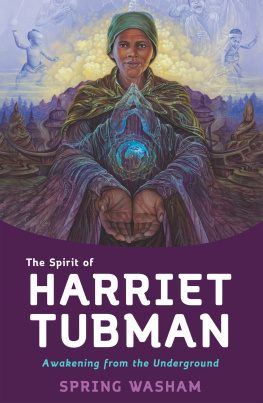
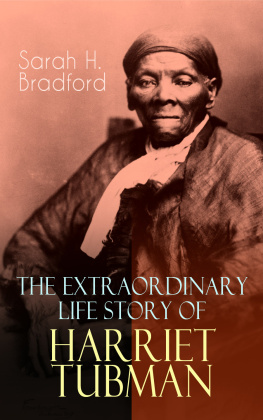
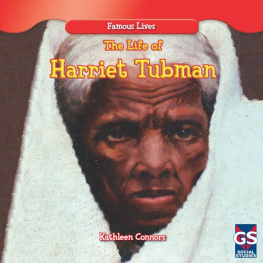
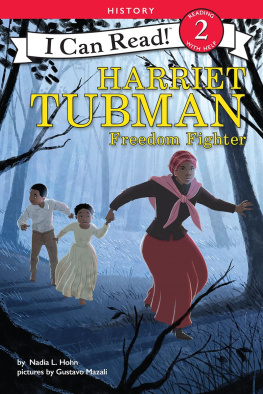
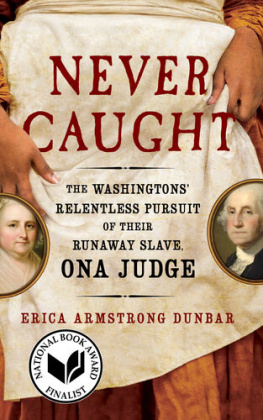
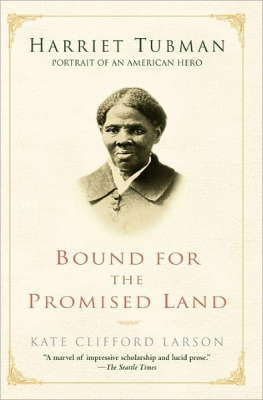
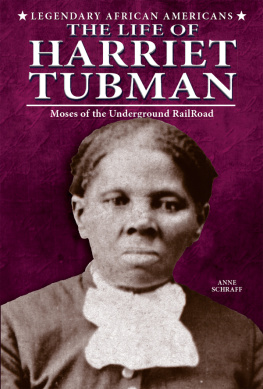

 www.routledge.com/cw/HistoricalAmericans
www.routledge.com/cw/HistoricalAmericans